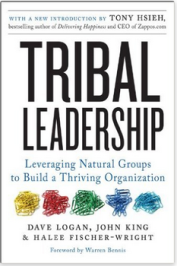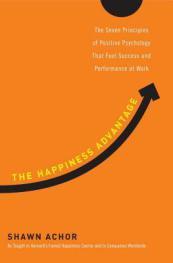Mike Henry Sr.'s Blog, page 107
July 18, 2016
Pride Affects Leadership
You probably don’t wrestle with pride. I don’t wrestle with pride either. I pretty much go right along.
For me, pride is an ongoing problem. It shows up in the way I see myself as the center of everything. I find it difficult to enjoy the success of someone else. I catch myself comparing all the time. I always know which line is moving fastest and generally I’m not in it.
Humility is the result of having an accurate assessment of oneself. A humble person can be very good and know it. A humble person’s judgment is accurate, objective, and unbiased. Humility doesn’t demand someone underestimate their ability or importance. Humility is the state where an individual accurately understands where they fit in the organization, team or the community.

As a manager, I can create a situation where pride is likely to flourish. When I fail to communicate openly, honestly and accurately with the people I lead, I put them in a position to become proud. It’s almost guaranteed. Pride can look like paranoia. For lack of input from me, my team will misunderstand where they’re missing the boat. Their perception of their own performance and value will fall short of or exceed an accurate measurement and without even knowing it, they become proud. Also, when my input fails to help them understand the value of the contributions made by themselves or others, pride begins to set in. And when I, due to lack of input, fail to inform them about business direction, values, perceptions, they again get off-center and the result is pride.
I wonder the degree to which I create the problems my team experiences. Could it be that, through my own lack of communication with my team, I create the pride problems I experience?
Battle pride with respect
Open communication, valuing others and building trust are the only ways to defeat pride in the workplace. When a team accurately appreciates each member’s contribution, pride evaporates and the team’s performance is free to excel. Skill and practice are still required for success. But no amount of talent can override the inevitable failure of a prideful group of people who try to act like a team.
So if you’re dealing with pride among your team, communicate more. Be honest, transparent, open and speak often. Tell the good and the bad. Only through respectful communication can you build the trust that will kill the pride destroying your team.
Photo freestocks.org
Filed under: Leadership








July 14, 2016
The Value of Vision
A compelling vision pulls you to your future. Focus on your circumstances and lose your way.
“Obstacles are those frightful things you see when you take your eyes off your goal.” Henry Ford
What is your vision worth to you? If it’s not worth very much, you will abandon it. Your vision aims and defines your impact. Your vision will be the mark you make. Like light, if you focus all of your energy and effort, your life will cut steel like a laser. Little focus makes little impact. Maximum focus, maximized impact.

Vision pulls you through your circumstances, over and around your obstacles. A compelling vision can motivate you to do whatever you need to do one more time. Look at all you’ve invested. Consider all your effort, learning, striving, failing, learning and trying again. Because of everything you’ve done and because of the value of your vision, can’t you go one more time?
And another after that?
A compelling vision encourages others to join. People trust those who are not simply “in it for themselves.” If your vision includes others, like the level 5 companies identified in one of my favorite books, Tribal Leadership, your actions prove your credibility and build trust. When interviewing a large pharmaceutical company while researching Tribal Leadership, the question came up “Who’s your competition?”
 “Arthritis; Cancer,” the answer came back.
“Arthritis; Cancer,” the answer came back.
When you’re about something that benefits others, you’re more believable and trustworthy. People want to know you’re not just in it for yourself.
A compelling vision changes the world. Let’s face it. If all you want to do is make money, live comfortably and stay out of trouble, I’m surprised you read this far. In fact, I’m amazed you’ve read anything on this website. We’re not about private comfort here. We want to make a positive, lasting difference. Some of us are motivated to make a difference because we simply think that’s the best way to live. Others, like myself do it as part of their faith or worldview. Almost no one makes the world better by accident. Just about everything deteriorates, rusts or rots. Everything spirals down, not up.
“Never doubt that a small group of thoughtful committed citizens can change the world; indeed, it’s the only thing that ever has.” Margaret Mead
A compelling vision pulls you forward. It encourages others to join and changes the world. Is your vision one that will pull you through the hard times? Is it one that will energize others to believe, trust and act? Is it one that will truly change the world? Are you actively working on it? Share a bit about your vision below. Use the space to sharpen your focus. Drive a stake in the ground.
Note: I’m in the process of starting an online community of people who help one another live their faith everyday. If you would like to learn more, contact me and let me know. Thanks.
This post first appeared on Lead Change Group blog.
Photo © wi6995 Fotolia
Filed under: Leadership Tagged: Impact, vision








July 10, 2016
Breaking News
As an American, I see the tension and the violence prominent in our news today. I’m concerned.
As a voter, I see the various agenda being woven into the comments of people on both sides of issues regarding government, guns, right and wrong, power, race and a number of other issues.
As a media consumer, I understand there is profit to be made in gaining my attention.

As a Christ-follower, I see the inconsistencies in our attention. Certain deaths seem to be more important than others. Certain injustices seem to be worse than others. It’s easy to criticize. It’s easy to focus on the negative and to think about what others “should” do.
For those of us who follow Jesus, we know we’re to love those who persecute us. If you don’t assign any value to the teachings of Jesus, this message isn’t for you. But if you do claim to follow Jesus, we must consider carefully how he reacted when he was wronged. We must remember he knew what would happen to him, and yet he still gave us this command:
“But I say to you, do not resist an evil person; but whoever slaps you on your right cheek, turn the other to him also. If anyone wants to sue you and take your shirt, let him have your coat also. Whoever forces you to go one mile, go with him two. Give to him who asks of you, and do not turn away from him who wants to borrow from you.
“You have heard that it was said, ‘You shall love your neighbor and hate your enemy.’ But I say to you, love your enemies and pray for those who persecute you, so that you may be sons of your Father who is in heaven; for He causes His sun to rise on the evil and the good, and sends rain on the righteous and the unrighteous. For if you love those who love you, what reward do you have? Do not even the tax collectors do the same? If you greet only your brothers, what more are you doing than others? Do not even the Gentiles do the same?Therefore you are to be perfect, as your heavenly Father is perfect.” Matthew 5:39-48 NASB
When I read this, I immediately flash forward in time to an encounter Jesus had with a group of Jewish leaders who caught a woman in the act of adultery. In John 9: 1-11, Jesus was asked to comment on how to treat this person who had clearly done something wrong. Jesus said, “He who is without sin among you, let him be the first to throw a stone at her.” (John 9:7b)
As an American, I’m invested in the rule of law. I’m only able to judge to the extent I’m responsible as a member of our society.
As a Christ-follower, I’m not in a position to criticize others. I’m not without sin. I must try to live my own life according to the Person I follow. Fortunately, Jesus doesn’t condemn. He simply says, “Go and sin no more.”
This may not seem like much of a reaction to the violence of the last few days. That would be correct. I don’t want to react. Leadership is action, not reaction. I won’t be marching. I won’t even be liking or sharing must of the stuff my friends are sharing from both sides of this issue. I don’t want to be part of the escalation. Rather I want to be one person who simply refuses to play. I will pray and try to live my life in such a way that people can see I follow Jesus.
Photo © badboo / 123RF Stock Photo
Filed under: Faith








July 7, 2016
Leadership Workout
A quote from the introduction to the 4th edition of Leadership Challenge by Kouzes and Posner caught my attention. “In the end, we realize that leadership development is self-development.” That thought stuck in my mind. It explains much of my passion for the topic of leadership.
Have you ever noticed the energy you get from helping someone accomplish something they’ve set their mind on? If they bring the energy, you are energized to help. But if you ever realize you’re more motivated than they are, your energy starts to drain. One of my core values in hiring, or association, or partnership is my estimation of the other person’s ability to self motivate. If I believe they’re motivated, I’m excited to engage. No leader wants to have to energize their team every day. Team members that would rather be somewhere else should get somewhere else. People who do not look forward to anything or who cannot get excited about something end up being a drain, at least to me and many of the leaders I know.
How’s your self-development? Are you doing what you can to grow yourself? Do you find yourself complaining about your situation? Have you let your circumstances dictate your energy level or are you setting the stage, creating your future? Are you a victim or a creator? Are you helpless or are you an owner? Are you a thermostat or a thermometer?

I first wrote about the leadership workout years ago. However, even now, reading The Happiness Advantage by Shawn Achor, I notice similarities. The book contains well-researched data and conclusions about attitude. The simple fact is, the happier we are, the more effective we are. And our happiness is something we create, just like our motivation.
Our world needs leaders, individuals who embrace our circumstances and make the best of them. Our job is to bring a creator mindset to every environment, every circumstance. We develop as leaders as we exercise our ability to influence our circumstances. And, just like physical exercise, exercising positive influence is something we all get better at as we work at it. As some encouraging friends on Twitter like to say, “make it a great day”. Work out your leadership skills today and create your future!
Updated from a post that originally appeared on the Lead Change Group blog.
Photo Copyright: tolstnev / 123RF Stock Photo
Filed under: Leadership Tagged: character-based leadership, energy, happiness








July 3, 2016
Freedom To Strive After Our Potential
In The Happiness Advantage, Shawn Achor defines happiness as “the joy we feel striving after our potential.”
Two-hundred and forty years ago, 56 men signed a document that began, “When in the Course of human events, it becomes necessary for one people to dissolve the political bands which have connected them with another, and to assume among the powers of the earth, the separate and equal station to which the Laws of Nature and of Nature’s God entltle [sic] them.” They went on not only to pledge, but to give,their lives and their sacred honor in pursuit of this dream.

I’m fortunate to live in a world informed by the United States Declaration of Independence. Many great people paid the price to maintain our independence, and to make it relevant in the world. Many free people groups can credit some degree of their freedom to the people who created and stood by that document. The US is not perfect and not without error. But today we celebrate the price paid by those who determined it was necessary “to alter their former Systems of Government.” They asserted “that all men are created equal, that they are endowed by their creator with certain unalienable Rights, that among these are Life, Liberty and the pursuit of Happiness.” They even went on to state their idea that “Governments are instituted among Men, deriving their just powers from the consent of the governed.”
I am also grateful for the men and women who sacrificed part or all of their lives to keep this nation free. Thank you.
The “united States of America” as titled in the document declared their independence so we could strive for our potential as an equal, free people. They created and we have continued to live under a government created of, by and for people. Again, not perfect, but powerful in conception. Democracy is loaded with potential as we have seen by the progress of the United States in the last 240 years.
“Many forms of Government have been tried, and will be tried in this world of sin and woe. No one pretends that democracy is perfect or all-wise. Indeed it has been said that democracy is the worst form of Government except for all those other forms that have been tried from time to time.…” Winston Churchill, House of Commons, 11 November, 1947
What is your potential? Have you experienced the joy of striving after it? Most of us are off work today so we can celebrate. Does your work propel you toward your potential? If not, why not? What compromise have you made to forego your potential?
Webster suggests the origin of the word potential comes from the Latin for power, potent. Potential is power, possibility, or what could be. Our happiness comes from pursuing our best, or as Achor said elsewhere, from activating our potential.
What could be, for you? What do you need to declare independence from today so you can be free to strive after your potential? Comment below and share this post. Let’s go public with our independence today and strive after our potential. What are you waiting for? Our world needs your best you. Go for it!
Photo © Mike Flippo 123rf.com
Filed under: Leadership Tagged: happiness, Independence Day








June 29, 2016
At War With Apathy
I am still at war with apathy.
Almost 7 years ago, in response to some career frustration, a friend told me I was at war with apathy. You can read about my first thoughts on the idea over on the Lead Change Group blog, here and here.
For me, being at war with apathy means living on purpose. Apathy is a lack of feeling, emotion, interest or concern. Living with apathy means I tolerate a lack of feeling or emotion. I’m willing to live without interest in or concern for others. There are activities for which I have little feeling or emotion. But I don’t want to tolerate living my life without experiencing passion and excitement or interest and concern. I don’t want to live life without feeling and emotion.
War with apathy is part of my makeup. If we’re not going all out, I’d rather not go. I want to have 2 speeds: all out or passed out. I don’t drink caffeine. I tell people if there’s something interesting going on, I’ll be awake. And if nothing interesting is happening, I’d rather be asleep.
It stings to know the majority of the American workforce is disengaged at work. We experience apathy when we’re disengaged. Often discussions about employee engagement come from the employer’s side. If our employers listened more or paid better… There are 2 sides to engagement. Anyone on the side of engagement is at war with apathy.
But after knowing what I know, I still do catch myself going through the motions. I don’t like to look back at an hour or a day (or worse) where I’ve simply done enough to get by. Sometimes I do it because I feel powerless to change my circumstances. There are activities that I dislike, or that put me to sleep. I may be powerless to change what needs to be done, but I’m never powerless to change my attitude.
I’m never powerless to change my attitude.
We always have the ability to control our attitudes. I’ve written about happiness in recent posts. The way we approach experiences and how we invest our attention impacts our perspective. We can choose happiness, and “buck up” our attitude for a while, but it is more effective to invest our time, attention and resources in positive, uplifting ideas and activities. When we focus on gratitude, we find ourselves happier, and when we are happier, we perform better.
Do you want to join the war with apathy? We must start with ourselves. Where are we going through the motions? What can we do about it? Can we transform our attitude to gratitude? Even when we do something we dislike with gusto, passion, energy and excitement, we increase our chance to bring excellence and receive enjoyment from any effort.
Then pass it on. As you focus on gratitude, state it. Reach out to someone and say thanks. Double your tip. Tell someone you appreciate what they did. Help others experience life without apathy.
Photo credit: skeeze via Pixabay cc0
One note: I’m preparing to launch a non-profit organization designed to instigate and inspire Christ-followers to live with purpose. If you would like to learn more as the time draws near, contact me and let me know. Seven years is a long time.
Filed under: Leadership Tagged: attitude, engagement, happiness








June 26, 2016
Normal is Merely Average
In my last post, I wrote about the Ted Talk I recently heard given by Shawn Achor, the author of The Happiness Advantage.
He states that the professional world works to help people become normal, (or worse,) but by using the term “normal” what we often mean is “average.” Average is that place where we don’t stand out. We’re like everyone else. We do the things other people do. At about the 4:45 mark, he says, “Normal is merely average.”
“Normal is merely average.” Shawn Achor

Why is it we want to be like everyone else? Deep down inside, you understand you’re unique. When people create something, we try to make it repeatable. But our greatest appreciation is for the one-of-a-kind. Thousands of people line up on Antiques Roadshow hoping they have a rare collectible. We’re looking for the unique, rare, valuable.
Antiques Roadshow proves Achor’s point from this segment of the video. We’re looking for the rare, the exception or the one-of-a-kind. We long for a nostalgia and the unique. And when we focus on rare enough, we’re tempted to believe rare is normal.
Our media talks about bad and negative news all the time because it is the exception. Yes, the exception. Most of the people on the planet lived their life yesterday. They raised their kids and they paid their bills. They did their jobs without stealing or cheating on their spouses. Most banks weren’t robbed. Most flights didn’t crash. Most of the time, most of what happens isn’t newsworthy. News, you see, is the exception, not the rule.
However, as Achor suggests, after a while, what we give our attention to will begin to transform us. Media of any kind is a very new invention. Most of us didn’t think much about the Internet at all 20 years ago. The television is still only 50 or so years old. Even daily newspapers weren’t invented until 500 years ago and they weren’t common until 200 years ago or less.
Our brains average out the inputs. If most of our inputs are negative, our average is negative. If our inputs are positive, our average begins to move toward the positive. Actor’s book, The Happiness Advantage is next on my to-read list. I want to focus on the things I’m grateful for and the outcomes I’d like to produce. I can find out about the news any time I want. Rather than invest my attention in the negative, for the next few weeks, I will focus my energy on appreciating, creating and sharing the good I see.
I’m taking his challenge to journal and list 3 things I’m grateful for every day for 21 days. Today is my day 10. Join me?
Photo © aquir / 123RF Stock Photo
Filed under: Leadership Tagged: happiness








June 22, 2016
Living My Faith
I decided to follow Jesus over 28 years ago out of career frustration. Even though I make a decent living, I’ve never done a good job of meeting or exceeding my expectations. I seem to be consistently unhappy. It’s been a big problem in my life.
My frustration from my job caused me to examine what church was all about. Through that search, I found a new life and a new way of living by following Jesus. Even though I don’t consider myself a follower, I know I want to follow Him. In most everything else, I want to lead.
But God refused to get me out of the job situations that caused me to search for Him in the first place. When I worked for my dad, I realized because of the nature of the logistics industry at the time, my dad’s competitors would never hire me. (I do acknowledge that I was some degree unemployable, but they also didn’t want their competitor’s kid knowing their business.) Unhappy in my job, but with little in the way of options, first, I found and decided to follow Jesus, and years later, I quit my job just to look for work and do freelance computer programming.

Fast forward through another dozen companies and 20 or so bosses, and I still wrestle with being happy at work, doing my best, and trusting God. I’ve learned I work for God… I’m assigned to an employer. My job is connected to the work God has been doing since the beginning of time. I’m helping God restore a relationship with anyone who wishes one.
Therefore I believe living my faith daily means I need to do 4 things to be in a position to take part in the action whenever God is working with someone I know or contact:
First, I should ask God to make me aware of opportunities. God is busy and working and I just need to see the chances I get to participate in the work.
Second I want to know what I believe and be able to tell someone else about faith in Jesus without quoting the bible or my pastor. My faith needs to be my own, reasoned and explainable.
Third, I need to serve others. I should get outside of my job description. This isn’t easy, but it most often is the way things happen. The opportunities God creates often look like service.
Fourth, I need to speak for myself. As I live my faith, and do it for my own reasons, and as I serve others, I may get the opportunity to speak. I don’t need to sound like a preacher or a politician, but I need to present my faith as my own. That’s the only way I’ve found where I can talk about my faith without offending others.
When I do these 4 things, I believe I live my faith. Yes, I struggle with checking in every day and living transparently, without hypocrisy. Each day is another try, another chance to make a difference instead of simply making a living. Over the next few weeks, I’ll share more about each of the 4 actions above. I hope you’ll join me and find more ways to daily live your faith too.
What do you think? Do you believe I’m making this too simple, or too hard? Do you think I’m crazy to believe I can take part in the work God is doing? Take a minute and comment below. Thanks in advance.
Note: I’m in the process of starting an online community of people who help one another live their faith everyday. If you would like to learn more, contact me and let me know. Thanks.
Photo dibrova / 123RF Stock Photo
Filed under: Faith








June 19, 2016
Father’s Day Gratitude
 Lord, thank you for today, for Father’s day and for my heritage. There are things about my Dad that I appreciate. I am grateful for his passion for things that make sense. Dad taught me to learn from everything. I appreciate his loyalty and his values. I am grateful for his doing what he thought was right. I’m glad he made the hard choices to take care of our family and provide for us. I appreciate his always trying to be himself and how I learned about the importance of character from him. He wasn’t perfect, but he was who he was. His sincerity and his transparency were strengths; what we saw was what we got. He was for justice and fairness and he was willing to stand up for what he thought was right. He taught me there is one person I’m responsible for, me, and there is always something I can do. Thank you for Jack Henry.
Lord, thank you for today, for Father’s day and for my heritage. There are things about my Dad that I appreciate. I am grateful for his passion for things that make sense. Dad taught me to learn from everything. I appreciate his loyalty and his values. I am grateful for his doing what he thought was right. I’m glad he made the hard choices to take care of our family and provide for us. I appreciate his always trying to be himself and how I learned about the importance of character from him. He wasn’t perfect, but he was who he was. His sincerity and his transparency were strengths; what we saw was what we got. He was for justice and fairness and he was willing to stand up for what he thought was right. He taught me there is one person I’m responsible for, me, and there is always something I can do. Thank you for Jack Henry.
 Thank you, too, for Bob Bland, Vicky’s Dad. He, too, models the importance of giving. He did what he needed to in order to provide for their family. He loves justice and would do whatever it took to help someone out. He believes the best in people, and quietly works for others’ success. He is a strong man of God, and was a role model for me with the strength of his faith. He worked hard, but also likes to play a bit with a quiet joke or a subtle jab at authority. He loves his family dearly and has given, and continues to give, to help us succeed. He is another model of sincerity and transparency too, less concerned about what others think, and more concerned that he do what he can to help.
Thank you, too, for Bob Bland, Vicky’s Dad. He, too, models the importance of giving. He did what he needed to in order to provide for their family. He loves justice and would do whatever it took to help someone out. He believes the best in people, and quietly works for others’ success. He is a strong man of God, and was a role model for me with the strength of his faith. He worked hard, but also likes to play a bit with a quiet joke or a subtle jab at authority. He loves his family dearly and has given, and continues to give, to help us succeed. He is another model of sincerity and transparency too, less concerned about what others think, and more concerned that he do what he can to help.
Both men were quick to act. My Dad is no longer with us. His final years were marked by Alzheimer’s Disease. Vicky’s Dad is battling health and age issues. It is hard for him, and it was difficult for my Dad, not to be able to do what he used to. Each man made a mark in my life, as well as the lives of many others.
I’m grateful for how each of those men blessed me.
 I’m also grateful for my son, Michael Henry Jr. and how he is handling the role of father. He works hard, shoulders the responsibility of parenting with energy and without complaining. Like his Grandfathers before him, he also is strong to do what needs to be done. He is working hard to raise and provide for his family, open to input but without avoiding responsibility. He is a strong man who, with his wonderful wife Ashley, are both changing the world and raising world changers. I’m proud of the man he has become and the investment he makes in his family and his world.
I’m also grateful for my son, Michael Henry Jr. and how he is handling the role of father. He works hard, shoulders the responsibility of parenting with energy and without complaining. Like his Grandfathers before him, he also is strong to do what needs to be done. He is working hard to raise and provide for his family, open to input but without avoiding responsibility. He is a strong man who, with his wonderful wife Ashley, are both changing the world and raising world changers. I’m proud of the man he has become and the investment he makes in his family and his world.
Filed under: Leadership Tagged: Father's Day








June 17, 2016
Rewire Your Brain with Three Gratitudes
Happiness creates an advantage. What we think about matters. Check out this video for 12 minutes and think with me for a minute or two.
Shawn Achor states in the video that 90% of our “long-term happiness is predicted not by the external world, but by the way your brain processes the world.”
Toward the end of the video, he talks about practices we can do to train our brains for happiness. And while he listed 5 things, I’m going to focus on 2.
The first practice he listed is to think of 3 things we’re truly grateful for. If we write down 3 things we’re grateful for each day for 21 days in a row, we start to rewire our brains, “allowing them to work more optimistically and more successfully.”
The second practice he mentioned is to journal about a positive experience that occurred in the last 24 hours. When we write about a positive experience we’ve had recently, we give our minds the chance to relive it.
 So today, I’m beginning my 21 day journey. I know the only way negative wins is if I ignore or obscure the positive. I don’t want to look at the news or talk about politics any more. The negative that seems to ooze from the news media and from the political world drags me down. Negative exists. I’m not hiding from it. But I want to consume it in no greater proportion than it exists. Most of my world isn’t negative.
So today, I’m beginning my 21 day journey. I know the only way negative wins is if I ignore or obscure the positive. I don’t want to look at the news or talk about politics any more. The negative that seems to ooze from the news media and from the political world drags me down. Negative exists. I’m not hiding from it. But I want to consume it in no greater proportion than it exists. Most of my world isn’t negative.
I see people do cool things everyday. I see people help others at work. We get what we pursue. If we’re constantly reading People magazine, we train our brains that we’re not as pretty or fit or successful as the celebs. If we watch the political news, we train ourselves that both candidates will ruin our country. If we watch the local news, we see mostly bad news, weather, sports, and ads. We may get one positive story at the end.
Media is designed to present the exceptions. But then our brain starts to think everything is negative. He mentioned the example of the organization that put on a “wellness” week but talked about sicknesses each day.
We have much to inspire gratitude in us. Even more, we can become a source of gratitude in others. Take a minute to list your 3 gratitudes for the next 21 days. Who knows, you may become one of the 3 gratitudes listed by someone else by the end of 3 weeks!
Filed under: Leadership Tagged: books, happiness












